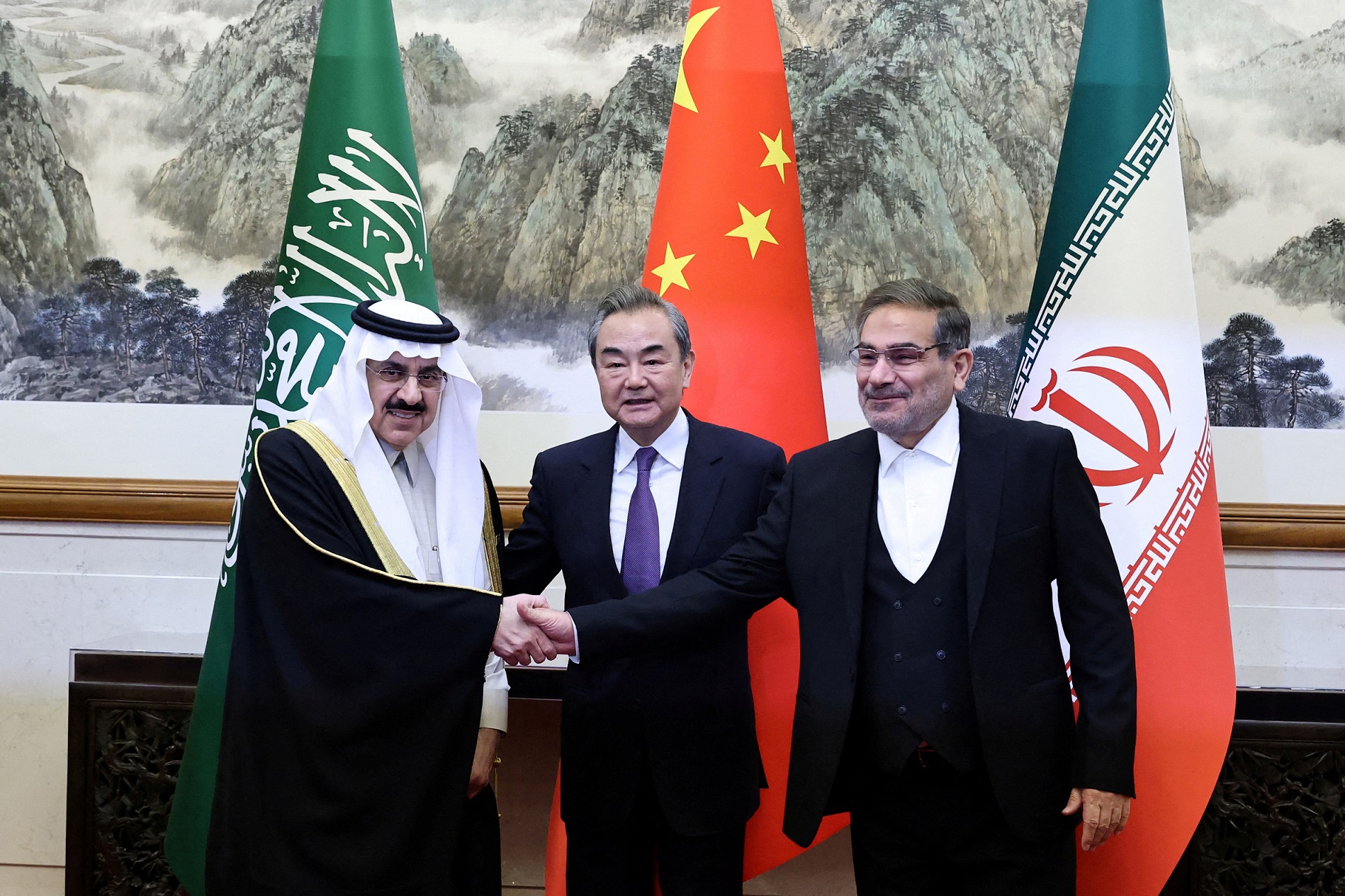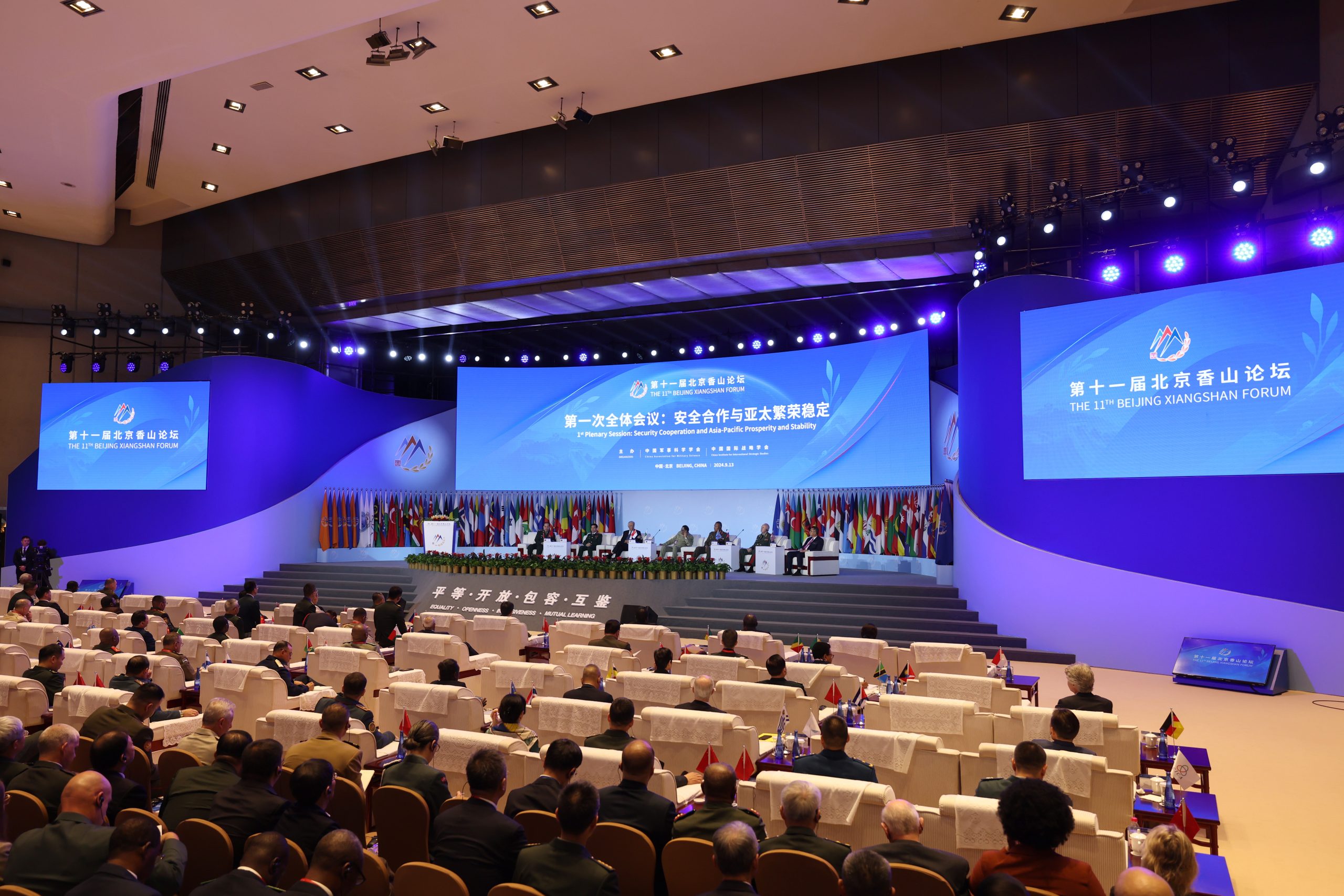Publications
INSS Insight No. 1902, October 13, 2024
The Xiangshan Forum was held in Beijing in mid-September 2024, showcasing key Chinese concepts, such as the Global South, the Global Security Initiative (GSI), and China’s approach to conflict resolution through dialogue. Whereas China views the Forum as a success, many of the ideas presented were general and reflected a naïve view of the current global reality.
From September 12 to 14, Beijing convened the 11th Xiangshan Forum, an impressive conference that is somewhat similar to the Shangri-La Dialogue in Singapore. Both events bring together current and former defense ministers, chiefs of staff, senior officials, and security experts from various countries. Attendees of the 11th Xiangshan Forum included defense ministers from Germany, Singapore, Sri Lanka, Cambodia, Belarus, Laos, South Africa, Congo, and Tanzania; the deputy defense minister of Russia (a lower level of representation compared to previous years); the chairman of Pakistan’s Joint Chiefs of Staff Committee; the chief of general staff of Iran; and a former foreign minister of Ukraine. North Korea did not send a representative and notably absent were speakers from Middle Eastern countries, such as Saudi Arabia, the Gulf states, Jordan, and Egypt, whose few delegates did not play a prominent role in the discussions.
The security-military presence at the event was evident in the ceremonial uniforms worn by most of the attendees and the parades of Chinese soldiers through the hallways. However, the primary aim of the Forum was to promote updated Chinese perspectives, particularly those of President Xi Jinping. This year’s theme, “Promoting Peace for a Shared Future,” was reflected in session titles such as “Building a Maritime Community of Shared Future and Safeguarding Maritime Security” and “Global South and World Peaceful Development.”
A key focus of the Forum was the Global South—a group of small or developing countries in Asia, Africa, and South America. Senior representatives from these countries were given a prominent platform to make speeches and call for a “new world order” in which all countries would enjoy equality. These representatives advocated for reforms in the UN Security Council and emphasized the importance of giving a greater voice to small developing countries. They expressed their gratitude to China for its support and stressed that multilateralism, as championed by China, is a more appropriate solution for the world than the American-led hegemony that, in their view, exists today. International organizations such as the Shanghai Cooperation Organization (SCO) and the BRICS nations—both of which are heavily influenced by China—were mentioned as important platforms for developing countries to make their voices heard. With a degree of naivety, these organizations were also idealized as models of egalitarian dialogue, emphasizing what the sides in the conflict hold in common, as opposed to their disagreements.
Calls to change the world order and establish a new and more egalitarian world order remained largely theoretical, given the limited presence of the United States, the “hegemonic” superpower, at the Forum. Only a small number of former US officials and academics attended, participating primarily in the sessions focused on China–US relations, China–Africa relations, and artificial intelligence. Their absence from other key sessions, including those dealing with disputes between the superpowers in regions such as the Middle East, Europe, and Asia-Pacific, allowed the session moderators and the other speakers to freely criticize Washington’s “warmongering policy,” while portraying China’s policy of “seeking peace and dialogue,” as a superior alternative for managing the world order.
As an example of this Chinese alternative, the Forum extensively discussed the Global Security Initiative (GSI), which President Xi announced in April 2022. The GSI is a conceptual platform for a new kind of security arrangement that emphasizes resolving fundamental conflicts through dialogue and diplomacy, in contrast to the American approach, which allegedly favors the use of force and sanctions. The Chinese approach, it was argued, focuses on the parties’ common interests for the purpose of creating trust and dialogue, which would then enable them to reach agreements. The Chinese deputy foreign minister who concluded the Forum cited examples of China’s successful mediation efforts, such as between Saudi Arabia and Iran, the joint statement made at the meeting of Palestinian factions in Beijing, and involvement in other conflicts “in South Africa, in Myanmar, and in many other countries.” He also highlighted China’s willingness to pursue cooperative endeavors between the GSI and other organizations, such as ASEAN, BRICS, and the SCO. However, the relatively small number of attendees from Western countries limited the opportunity to present opposing viewpoints, which, for example, could have forced China to confront its assertive policy in the South China Sea.

A more open confrontation arose during a session on China–US relations, featuring a frank, open, and fundamental exchange between Prof. Wu Xinbo, dean of the Institute of International Studies at Fudan University in Shanghai, and Rick Waters, Managing Director for the China practice at Eurasia Group and former US deputy assistant secretary of state. While Wu focused on the definition of the relations, Waters called for examining the policy in practice, sparing no criticism regarding China’s actions at sea and its military buildup, including in the nuclear realm. He also presented arguments pertaining to Taiwan and the export of Fentanyl to the United States. Although both sides were entrenched in their own positions, both agreed on the need to continue a dialogue for the purpose of maintaining good relations and reducing the risk of error due to misunderstanding the intentions of the other.
As befitting a forum discussing security issues, the Middle East was not absent from the discussion. Many speakers addressed the escalation along the Israel–Lebanon border and called for an immediate ceasefire in the Gaza Strip and an end to the suffering of the Palestinian people. Iran’s chief of staff, who displayed a substantial lack of self-awareness, prominently criticized the United States for allegedly establishing terrorist forces in different countries that were causing problems in other countries. In his depiction of this parallel world, he claimed that the Iranian military forces were working in all possible ways to maintain security and fight terrorism, and his country always used dialogue and diplomacy with its neighbors to maintain good relations.
Other speakers at the Forum addressed the reconciliation talks between the Palestinian factions that China hosted in April and July 2024. Although the chance of reconciliation is slim, they argued, the very effort and the attempt to reach a diplomatic solution are important. The speakers ignored the declared desire of Iran and Hamas to destroy Israel, and they proposed no way of bridging the gap between an immediate ceasefire and the fact that any reconciliation between the Palestinian factions, and certainly between Israel and the Palestinians, would take a long time.
From China’s perspective, the Forum was a success. Chinese narratives dominated the discourse, and China positioned itself as the leader of the Global South, at least in the rhetoric of the representatives of the Global South. In practice, the relations between China and a significant portion of these countries are not devoid of criticism, due to the provision of high-risk loans, the environmental effects of investing in infrastructure, and issues of employment. None of these issues were raised at the Forum, allowing for the construction of an alternative reality of a new world order based on Chinese conceptions.



